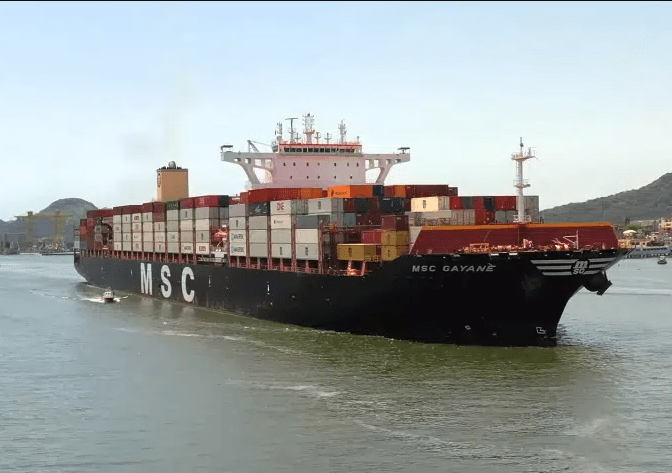The Brazilian Association of Port Terminals (ABTP) has filled a legal request at the Administrative Economic Defense Council (CADE) of Brazil to investigate the impact of the world’s largest container shipping line, Mediterranean Shipping Company (MSC) on the country’s economy.
ABTP accused the shipping giant of abusing its domination of the container shipping sector in Brazil to give advantages to its own terminals, raising costs and reducing options for the flow of cargo in the country.
ABTP noted that MSC and its 2M Alliance partner Maersk are responsible for 79% of containers (53% directly and another 26% through commercial agreements) transported along the Brazilian coast.
According to the group, the control of the flow of cargo is done in such a way that the seven port terminals owned by the 2M Alliance members would be favoured to the detriment of others, even in cases in which other ports are closer to the origin/destination of the cargo.
Maersk and MSC launched the 10-year 2M Alliance vessel-sharing agreement on the Asia-Europe, trans-Pacific and trans-Atlantic trades in 2015, in an effort to better utilise their combined capacity in the wake of their failed bid to launch the P3 Network. The arrangement, which includes a series of slot exchanges and slot purchases on East-West routes, also involves Maersk and MSC taking over a number of charters and operations of vessels chartered to Hyundai Merchant Marine (HMM).
